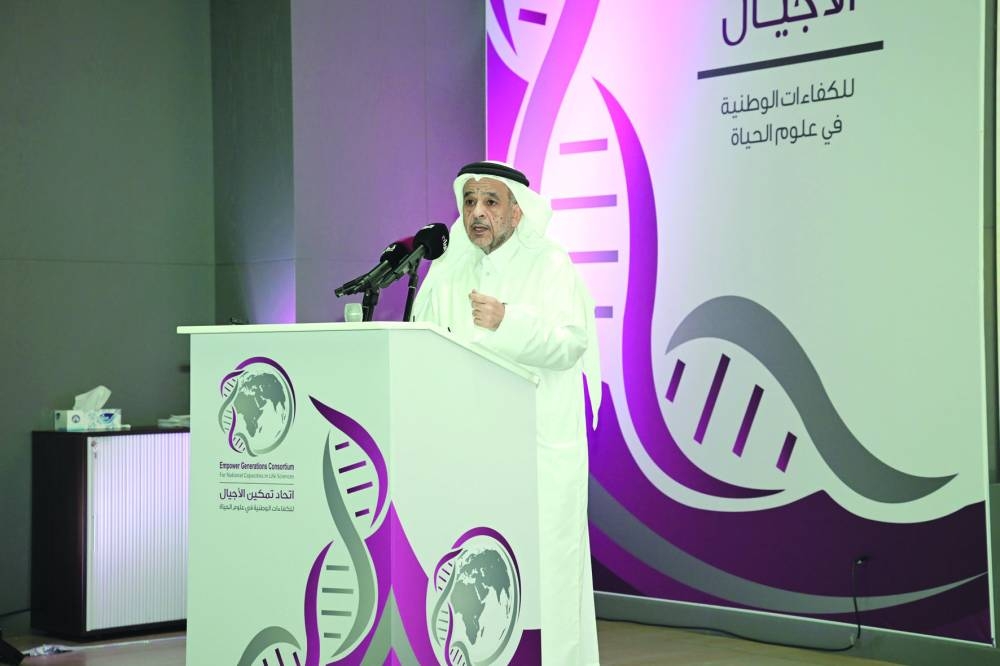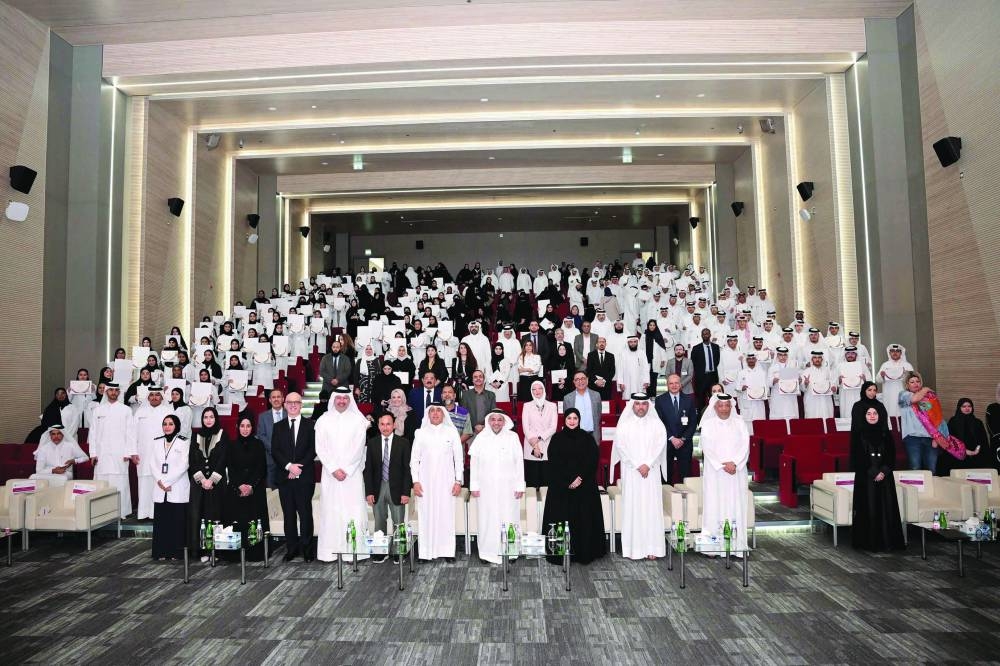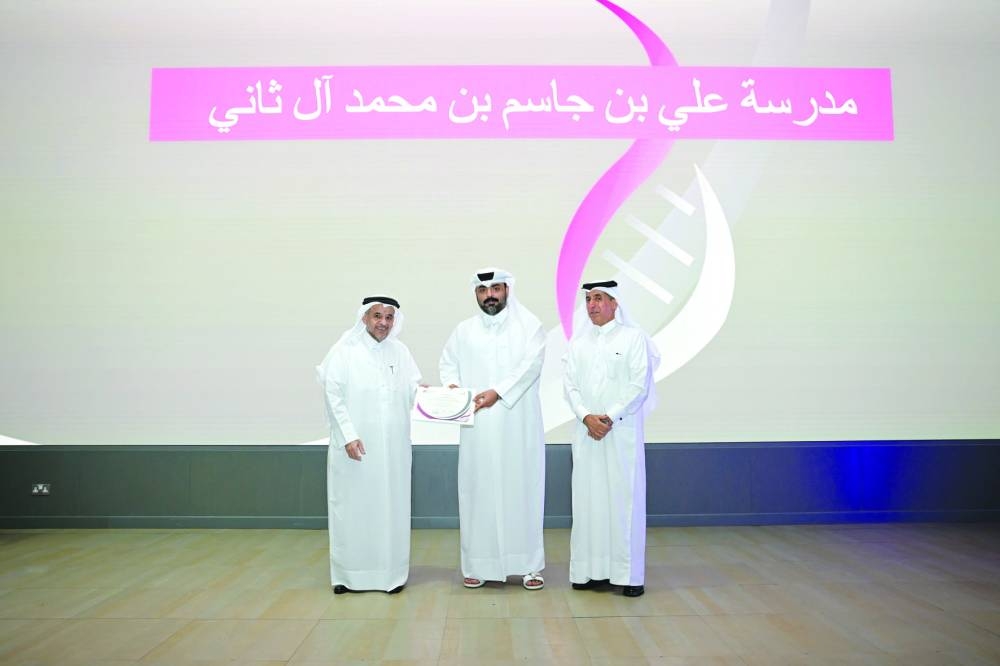Qatar University (QU) celebrated the graduation of the 13th cohort of the Generations Empowerment Consortium.
This initiative aimed to invest in national talent in health and medical sciences.
Speaking on the occasion, Dr Omar bin Mohammed al-Ansari, president of QU, emphasised that this national initiative bridges education and healthcare, paving new pathways for students toward a promising future. He highlighted the consortium’s embodiment of QU’s commitment to nurturing the scientific and practical capabilities of students in diverse fields such as healthcare, biodiversity research, genomics, precision medicine, and other disciplines that enhance human well-being and to balance societal ecosystems.
Dr al-Ansari further remarked that QU firmly believes in the abilities of its students. Through this initiative, the university provided an integrated environment that combines education with practical training in collaboration with its health and education sector partners. He noted that this unique opportunity allows students to engage with a network of experts, scientists, and healthcare providers, equipping them with skills to lead future advancements in health and medical sciences.
Prof Asma al-Thani, vice-president for Health and Medical Sciences at QU, shared that the latest round of applications received 926 submissions, out of which 230 students were selected to participate in training programmes such as Health, Qatar Scientists in Biodiversity, and Genomics and Precision Medicine. The training spanned two consecutive weeks, with a new addition this year focusing on empowering children.
Prof al-Thani added: “The Generations Empowerment Consortium reflects a national unity that integrates education and healthcare, elevating the ambitions of young people. The consortium seeks to create an inclusive environment fostering collaboration between students and healthcare providers through structured training programmes at the university campus. This approach supports young generations from an early stage, enabling them to reach their full potential and contribute meaningfully to the flourishing health sector.” Highlighting key achievements, Prof al-Thani noted that the proportion of Qatari students in the healthcare sector has risen significantly, from 6% in 2013 to 42% in 2024. The consortium has contributed approximately 40-45 % of these figures. Furthermore, this initiative has been documented in internationally published scientific research and officially accredited by the Ministry of Education as a community service training entity for public and private schools. The consortium has also signed several co-operation agreements with health sector partners and has won more than five international awards.
Established in 2013 to support Qatar National Vision 2030, the Generations Empowerment Consortium is the only initiative of its kind in Qatar. It unites 13 partners from the health, research, and education sectors, operating on a data-driven approach that underscores its effectiveness.

Dr Omar bin Mohammed al-Ansari, president of QU.


